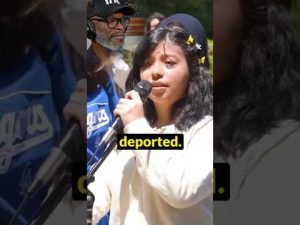The courtroom drama unfolds once more as Harvard University takes its grievances against the Trump administration over frozen federal funds to the legal arena. The prestigious Ivy League institution is desperate to recover over $2 billion in federal funding that was put on ice after former President Donald Trump accused Harvard of failing to protect Jewish students on campus. Harvard, long heralded as a bastion of knowledge and higher learning, now finds itself embroiled in a contentious legal battle, seemingly stuck on the script of claiming all the high moral ground while denying the mess in its backyard.
The crux of the university’s argument is rooted in their assertion of doing everything they can to create a safe environment for all students. Yet, as these details unfurl, Harvard’s track record might say otherwise. A commissioned study by the university itself underscored rampant anti-Semitism on campus, with little done to protect Jewish students from harassment and discriminatory behavior. Instead of taking firm action against offenders, Harvard’s tendency to cuddle up to the protesters and perpetrators has not gone unnoticed, turning the university into a veritable breeding ground for intolerance.
Moreover, Harvard’s issues extend beyond campus climate. Allegations persist surrounding racial discrimination in their admissions process, casting doubt on the institution’s adherence to the Civil Rights Act. Even with a Supreme Court ruling calling out their selective admissions shenanigans, Harvard appears reticent to change course, almost as if hoping that sheer prestige will overshadow their questionable practices. The penalty for their transgressions isn’t cheap: billions in federal funds are at stake.
It seems that Harvard’s grandmasters of academia could benefit from brushing up on a few basic vocabulary lessons. The funds in question are grants, meaning a gift—not an entitlement—subject to compliance with the law. The argument from the ivory towers that they are entitled to these funds despite non-compliance is enough to boggle the mind. It’s a stark reminder that even the most esteemed institutions can fumble the basics when it comes to responsibility and accountability.
The outcome of this legal face-off remains to be seen, as both sides prepare to present their cases. An Obama-appointed judge, known for previous rulings against Trump, will decide the case’s next steps, although an immediate ruling isn’t expected. If unresolved, the case has the potential to reach the Supreme Court. In the meantime, Harvard is left to wrestle with its own demons while keeping fingers crossed for a favorable verdict—a long haul punctuated by negotiation pits and legal roadblocks. Whether the elite enclave can pivot from discord to discipline remains a tale yet to unfold.







